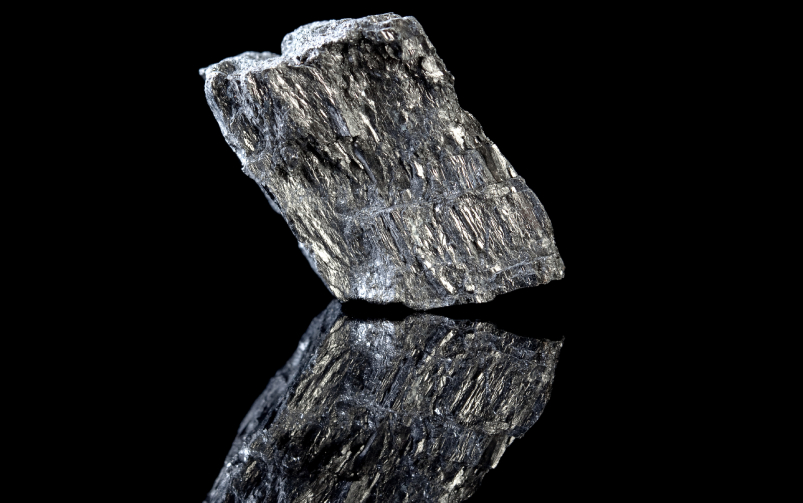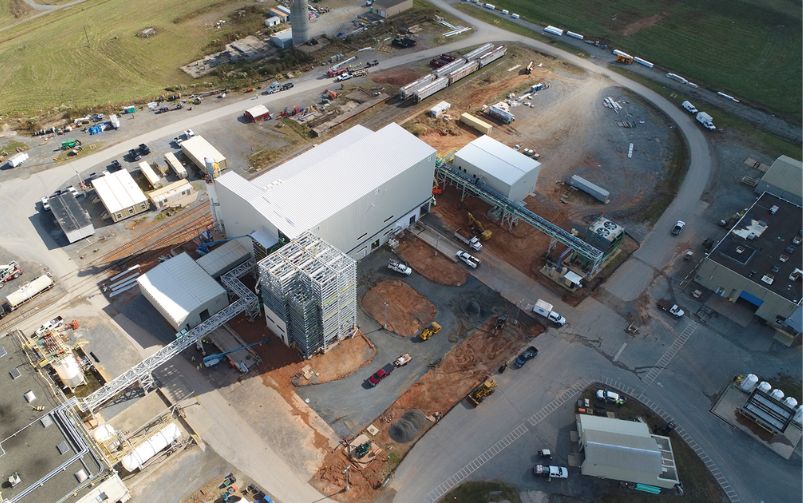Chile plans to transfer the mining of the country's lithium deposits from Albemarle and SQM to its own state-owned company. Courtesy of Albemarle.
Welcome back to your weekly mining news recap, where we catch you up on some of the news you may have missed. This week’s headlines include an Ontario-funded innovation cluster focused on green technologies, an investigation into animal deaths at a tailings pond at Suncor’s Base mine and a project profile of the Magino open-pit mine in Ontario.
Teck Resources withdrew its plan to split its metals and coal divisions into two separate companies ahead of its annual meeting on Wednesday. Teck stated it would pursue a simpler and more direct separation based on shareholder feedback, and in the meantime would focus on ramping up its QB2 copper project in Chile. Teck reiterated it is still not interested in a proposed takeover from Glencore; Teck’s board of directors rejected two bids from the mining giant earlier this month. Glencore responded to Teck’s position by stating that the company is willing to work with Teck’s Canadian stakeholders to ensure its acquisition proposal benefits the country.
A Laurentian University researcher said Ontario is still a long way from reducing diesel particulate levels in underground mines to protect workers from health hazards, as reported by Northern Ontario Business. The province recently announced its plan to reduce occupational exposure to diesel exhaust emitted by diesel-powered equipment underground. Under the new legislation, the exposure limit amount would be cut to 120 micrograms per cubic metre of air, which will come into effect on September 1. George Flagler, a graduate student at Laurentian University and a researcher at the Centre for Research in Occupational Safety and Health (CROSH), said the goal set out by other researchers and United Steelworkers (USW), which advocated for the changes, is 20 micrograms per metre cubed. Flager said the industry is lagging behind on worker safety, and defines the issue as urgent because inhaling diesel exhaust carries a cancer risk.
Four Ontario universities are forming an innovation cluster to expedite the development and adoption of new technologies critical to the decarbonization transition. Laurentian University will lead a pilot project with Lakehead, Nipissing and Trent universities focused on critical minerals, cleantech and electric vehicle batteries. The initiative is being funded by Intellectual Property Ontario (IPON), a provincial agency that will provide $294,000 that will be used to hire an industry liaison officer. The officer will be shared among the four institutions and will link university researchers with the mining, transport and energy sectors and other partners focused on innovation in the hopes of getting these technologies to market faster.
French energy and petroleum company TotalEnergies signed a deal to sell its Canadian operations to Suncor Energy, which will add 135,000 barrels per day of net bitumen production capacity to its portfolio, as reported by Global News. Suncor will pay TotalEnergies $5.5 billion in cash in the deal, and up to an additional $600 million that is dependent on Western Canadian Select benchmark oil pricing and production targets. Suncor will own 100 per cent of the Fort Hills oil sands project under the agreement, after announcing in 2022 it would purchase Teck Resources’ 21.3 per cent stake in the project.
Suncor is also in the news as it is under investigation by the Alberta Energy Regulator (AER) after numerous dead animals were found in a tailings pond at its Base mine site north of Fort McMurray, as reported by Mining Technology. The energy regulator found 43 birds and a variety of other wildlife in the pond. Suncor stated this was likely not a recent event, and the AER backed its assessment. Allan Adam, chief of the Athabasca Chipewyan First Nation, said the energy regulator should be disbanded due to its ongoing failure to communicate or regulate environmental incidents.
Chile’s state development office, Corfo, met with Albemarle, a U.S.-based miner, to discuss Chile’s plans to nationalize its lithium industry, as reported by Reuters. Corfo owns the country’s lithium deposits and leases mining contracts; Albemarle currently has a contract to operate at the Salar de Atacama until 2043, but Chile’s president Gabriel Boric plans to transfer lithium operations from Albemarle and Chilean lithium producer SQM to a separate state-owned company. Under the plan, Corfo will continue to own the mining properties and will allow mining to be carried out by lease contracts that gradually incorporate the state-owned company. Chile’s government will start negotiations with Albemarle and SQM through Codelco, Chile’s state-run copper producer, by the middle of the year with hopes to reach an agreement sometime in 2026.
Canada’s Trade Minister Mary Ng is concerned about Mexico’s recent proposed mining reforms, as reported by Reuters. The proposed reforms include shortening concessions from 50 to 15 years, tightening rules for water permits and incorporating requirements for companies to return at least 10 per cent of profits to communities and disclose mining impacts. Ng stated that the proposed reforms could affect Canadian investment in Mexico’s mining sector as well as impacting the resiliency and competitiveness of the North American supply chain.
Australian coal company Montem abandoned its plan to develop a coal mine at the Tent Mountain site in Alberta, as reported by The Canadian Press via Global News. The mine, located in the southern Canadian Rockies, stopped operating in 1983, and the company originally planned to reopen it and expand operations to produce 4,925 tonnes of steelmaking coal per day over 14 years. In 2020, Alberta’s UCP government rescinded restrictions on developing open-pit mines in the region but backpedalled in 2022 after public backlash and paused the changes. Montem now plans to build a hydrogen facility at the site.
The Magino open-pit gold mine, located approximately 14 kilometres southeast of Dubreuilville, Ontario, is expected to begin commercial production in the fall of 2023. The mine is anticipated to become Argonaut Gold’s largest and lowest-cost mining operation, reported CIM Magazine freelancer Mehanaz Yakub in the March/April issue of the Magazine. While the project faced some unexpected obstacles along the way, including cost overruns, the company stated it believes Magino has the potential to be one of the 10 largest gold producers in Canada.
KPI Mining Solutions and the COSMO Stochastic Mine Planning Laboratory at McGill University recently released the KPI-COSMO Stochastic Mining Optimizer, which is stochastic mine planning software created for open-pit mining operations. The software, which is the first commercialized product from the lab, is designed to integrate multiple simulations of mineral deposits, along with uncertain variables such as future pricing, to optimize the whole mineral value chain. The partners stated that as a result, the software can help produce a more accurate mine production schedule, which can lead to higher NPV and help adhere to production and financial forecasts.
That’s all for this week. Next week we’ll be at the CIM Convention + Expo in Montreal. Come see us at booth 1915, tell us the “weekly news recap” sent you and claim some great CIM Magazine merch. If you’ve got feedback, you can always reach us at editor@cim.org. If you’ve got something to add, why not join the conversation on our Facebook, Twitter, LinkedIn, or Instagram pages?




